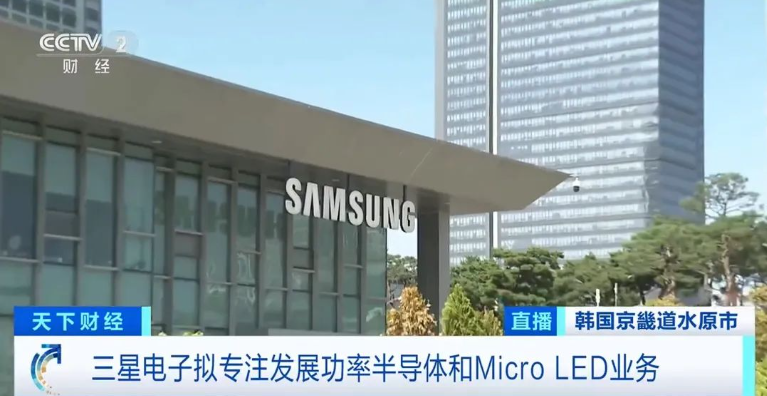According to a CCTV Finance report on October 20, Samsung Electronics has recently begun to adjust its business structure, in which the semiconductor division has decided to withdraw from the light-emitting diode, that is, LED business. Previously, the team at Samsung Electronics' semiconductor division was mainly responsible for the production and sales of LED products for TVs and smartphone flashes. In 2020, LG announced its withdrawal from the LED business, and Samsung Electronics' decision this time means that the two major electronics companies in Korea have withdrawn from the LED business. Samsung Electronics entered the LED lighting business in 2012 through a merger with Samsung LED, but in recent years, the performance of this business has been sluggish, and its competitiveness in the international market has gradually weakened. According to Samsung Electronics' third-quarter 2024 performance forecast announced on October 8, unaudited preliminary data showed that Samsung Electronics' profit and revenue in the current quarter were lower than market expectations. Sales were 79 trillion won, up 17.2 percent year-on-year but below the consensus estimate of 81.57 trillion won, while operating profit was 9.1 trillion won, up 274.5 percent year-on-year, but down 12.8 percent month-on-month and below analysts' estimate of 11.5 trillion won. Although the LED business generates about 10.4 billion yuan in annual sales for the company, it accounts for a small proportion of the company's total sales and is difficult to guarantee the expected profit, so Samsung Electronics decided to divest it and concentrate its resources on core areas with more growth potential, such as power semiconductors and micro LEDs.

Power semiconductors are widely used in electric vehicles, energy storage and other fields, and are the key driving force for the rapid development of the industry. As a new generation of display technology, Micro LED is still regarded as an important breakthrough in the future display field despite the challenges faced in mass production and cost control, and the fierce competition in the global market. This strategic adjustment of Samsung Electronics also reflects the company's determination to seek transformation and breakthroughs in the face of fierce market competition and internal performance pressure. At the same time, Samsung Electronics is also facing increasingly severe challenges in areas where it has strengths, such as semiconductors. Since the beginning of this year, its share price has fallen by more than 23%, and foreign investors have been net sellers of Samsung Electronics shares for 28 consecutive trading days, setting a record for the longest time in history, during which the company's market value has evaporated by about 90 trillion won (about 467.1 billion yuan). As a pillar of Korea's economy, Samsung Electronics' declining performance not only affects the export competitiveness of the domestic semiconductor industry, but also may affect the upstream and downstream enterprises that cooperate with it, and may even trigger a deeper economic crisis.





